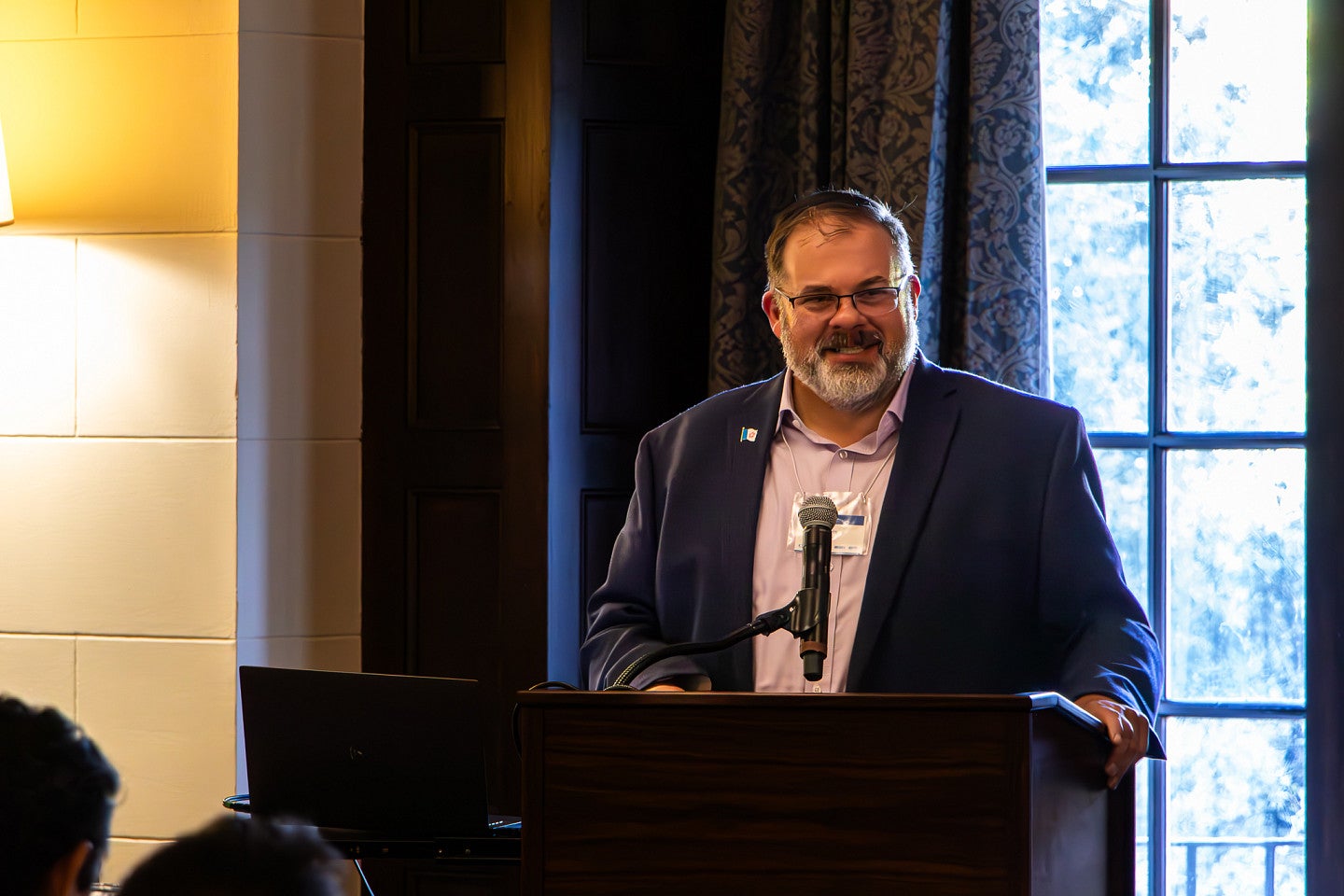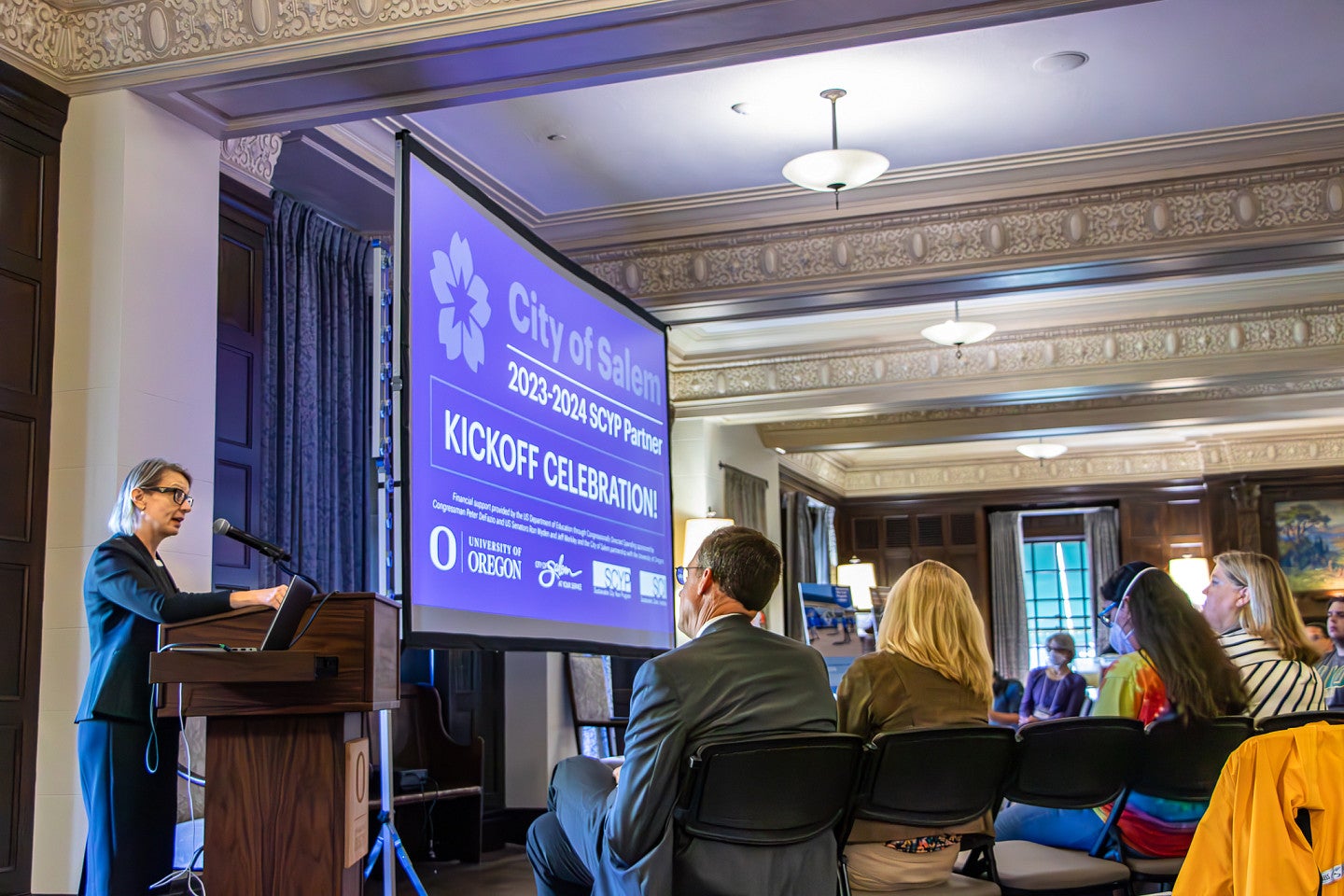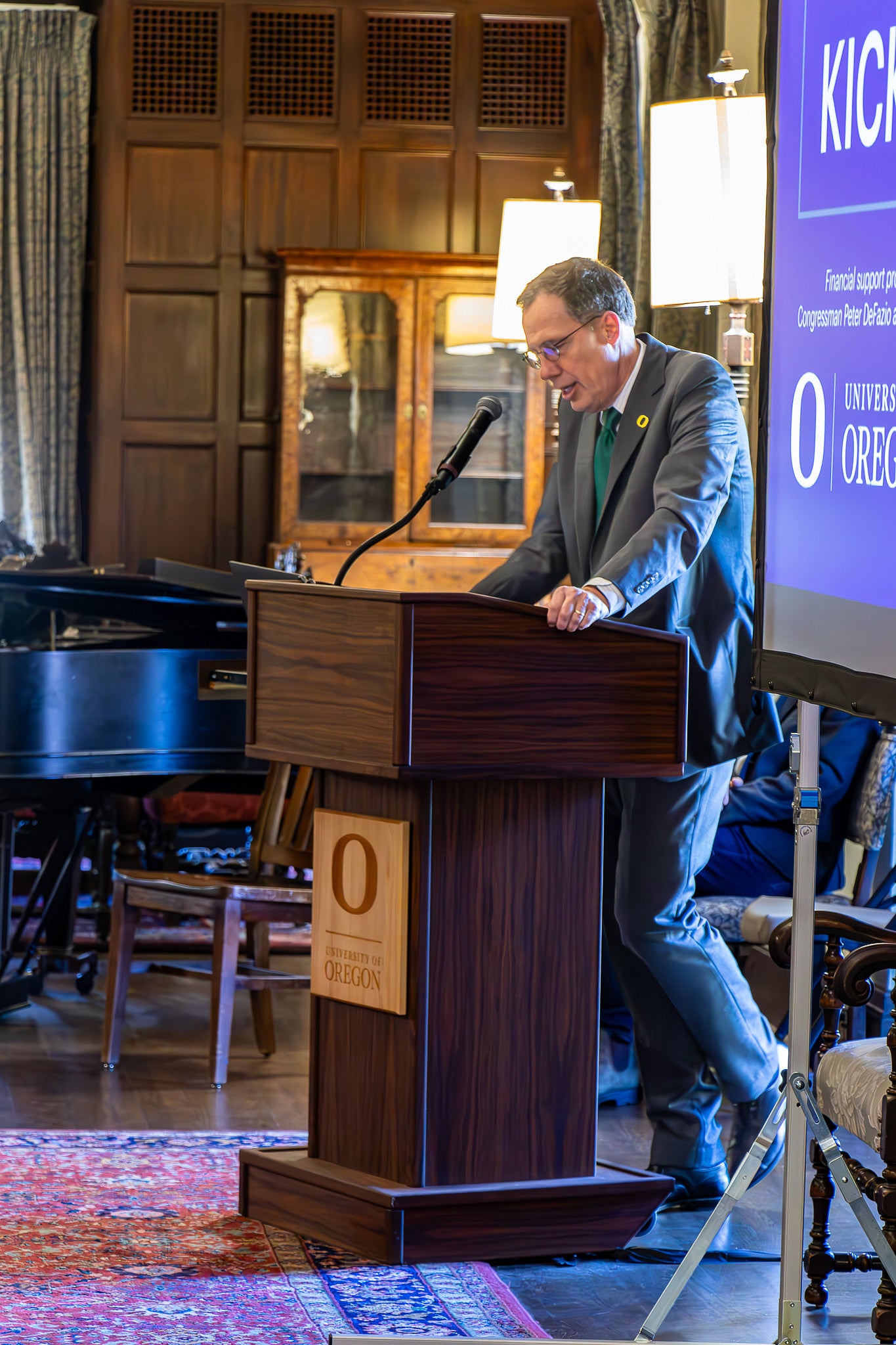On a Wednesday afternoon at the University of Oregon in the historic Gerlinger Hall, guests and stakeholders of all ages came together to celebrate the start of another Sustainable City Year Program (SCYP) service year. The fourteenth year's partner is a special one, as the City of Salem returns to the program. The city was one of the first partners for the nascent SCYP back in 2010–11 and comes back to the program in year fourteen with the full knowledge and experience of having gone through the rigors of the program before, and knows to expect a high-quality engagement, courtesy of the innovative faculty and students.
The kick-off on Wednesday saw university, state, and city leadership come together to preview the work coming in the following weeks and months. The excitement from the stakeholders in attendance was palpable, as the presenters and speakers talked at length about the forthcoming partnership.

“This is an exciting opportunity for our community,” said City of Salem Mayor Chris Hoy. “Our goal is to move further, faster than we could on our own. The students’ capacity and faculty expertise bring more resources to Salem, accelerating our environmental and equity work. We are fortunate to have been selected for this partnership.”
In addition to the City of Salem's mayor, Sustainable City Institute Co-Director and Planning, Public Policy and Management (PPPM) Professor Marc Schlossberg, UO President Karl Scholz, College of Design Dean Adrian Parr Zaretsky, School of Journalism and Communication Dean Juan-Carlos Molleda, College of Arts and Sciences Dean Chris Poulsen, and other faculty and research leadership gave remarks and previewed the work to come in the following year. Leadership was especially proud of all the work SCYP has completed over the years.

“The Sustainable City Year Program has been helping communities of all sizes since 2009 and is emblematic of the University of Oregon's long-term commitment to providing a dynamic educational experience while also improving our community," said Dean Zaretsky. "At the core of this program is a synergistic alignment of state leadership for research and academic energy, where students and faculty work in concert with community leadership. The program continues to build on the successes of the past, thanks to the dedicated involvement of our faculty, our students, and community leadership.”
University of Oregon students and professors work on up to 20 courses that will focus on a number of high-priority projects for the City Council and Salem community. The cross-disciplinary course list includes classes in journalism, architecture, landscape architecture, geography, planning, and public administration, with more to be added throughout the year as project and course matches are made and city priorities are identified.
When the city last worked with SCYP, it was during the 2010–11 academic year, which saw 27 courses completed with over 500 students contributing to the research and work. The impact that students can create for their community cannot be overstated, as Hoy mentioned the community is still feeling the effects of SCYP’s efforts from their first partnership, with Salem’s 1,200-acre park and fee administration exemplifying the lasting work of the university’s students. Experiential education and applied learning opportunities are unique hallmarks of the UO's educational experience.

“This is hands-on, applied education that serves the broader community,” President Scholz said. “It's an essential part of modern higher education, connecting students to classroom material in deeper ways and developing real workforce skills. Likewise, it can be transformative for the communities as they look to meet their various community goals.”
The mutually advantageous work that will be undertaken by students and faculty at the university under the SCYP umbrella helps our local communities address hardships and local issues with access to resources that might not be available. The university course gets matched with the needs of an Oregon city creating a unique, experiential educational opportunity that will prepare students for entry into the workforce while helping create a more positive and sustainable future for our local community. This model has been a proven success for Oregon for the past fourteen years and helps communities adopt solutions quickly, thanks to the help of the student and faculty participants.
“UO’s SCYP is a proven model of success, using the drive and expertise of students and faculty to discover solutions that move Oregon communities to a clean energy future faster,” Senator Jeff Merkley said. “The entire Salem community will benefit from being an idea-sharing hub that will provide students with tangible, real-world learning opportunities to make the city more sustainable and resilient to climate chaos.”
Thanks to the hard work and support from U.S. Senators Ron Wyden and Jeff Merkley, as well as former Congressman Peter DeFazio, this year's program and work is supported thanks to the secured federal funding for SCYP through Congressionally Directed Spending and the US Department of Education. Thanks to the additional funds from the City of Salem, this year's partnership is poised to create a lasting impact in Oregon's second-largest city for years to come, thanks to the proven track record of the students and faculty at the university.
“None of us actually quite know what amazing ideas students are going to produce this year for Salem's challenging questions and ambitious goals,” explained Schlossberg. “Yet we know that good things will happen.”
























